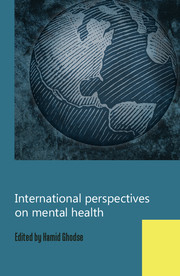Book contents
- Frontmatter
- Contents
- List of contributors
- Preface
- Africa
- Asia
- Australasia
- Europe
- Albania
- Austria
- Republic of Belarus
- Belgium
- Bosnia and Herzegovina
- Croatia
- Czech Republic
- Estonia
- Finland
- France
- Germany
- Greece
- Hungary
- Ireland
- Italy
- Lithuania
- Malta
- The Netherlands
- Norway
- Poland
- Portugal
- Romania
- Russian Federation
- Serbia
- Slovak Republic
- Slovenia
- Spain
- Sweden
- Switzerland
- Ukraine
- United Kingdom
- North America
- South America
- Index
Russian Federation
from Europe
Published online by Cambridge University Press: 02 January 2018
- Frontmatter
- Contents
- List of contributors
- Preface
- Africa
- Asia
- Australasia
- Europe
- Albania
- Austria
- Republic of Belarus
- Belgium
- Bosnia and Herzegovina
- Croatia
- Czech Republic
- Estonia
- Finland
- France
- Germany
- Greece
- Hungary
- Ireland
- Italy
- Lithuania
- Malta
- The Netherlands
- Norway
- Poland
- Portugal
- Romania
- Russian Federation
- Serbia
- Slovak Republic
- Slovenia
- Spain
- Sweden
- Switzerland
- Ukraine
- United Kingdom
- North America
- South America
- Index
Summary
The Russian Federation is a country with an enormous territory, of over 17 million km2. Its population is 141.9 million (2010 figure). The population was declining, especially at the end of the 1990s, but in more recent years the tendency has been towards stabilisation. Life expectancy has remained relatively low, although it has increased somewhat over the past few years, to reach 67.5 years in 2008 (61.4 for men and 73.9 for women), up from 65.3 years in 2004 (58.9 for men and 72.3 for women).
The budget for healthcare has remained low compared with that in other countries, both high-income and low- and middle-income ones, and constituted in 2009 about 5.5% of gross national product (GNP). However, it should be mentioned that the federal allocations during the same period had grown from 2.3% to 3.5% of GNP; the rest of the total budget was provided by the state medical insurance system. There are significant differences between different regions in the financial support for local healthcare from municipal budgets. Psychiatric care is financed from the federal budget and is not included in the state medical insurance system.
Psychiatric care
In general, the psychiatric care system is based on two main types of facility: the territorial psychiatric out-patient clinics, termed ‘dispensaries’ (in rural areas these are units located by general hospitals), which provide care for the population residing in a specific territory; and the psychiatric hospitals, which generally provide in-patient treatment for the population within a certain catchment area (district, city or region). As a rule, a dispensary district psychiatrist provides care for an adult catchment population of around 25 000, whereas child psychiatrists (who usually work in a child territorial polyclinic) provide care for a catchment population of 15 000 children and adolescents. These figures, though, will adjusted for territories with a lower population density.
Psychiatric dispensaries may additionally provide specialist services such as psychotherapy, neurology, epileptology, sexology and gerontopsychiatry; they may also set up day hospitals. So-called ‘narcology’ services for people with alcohol and drug addiction were established in Soviet times, and until now they have mostly operated separately from regular mental health services.
- Type
- Chapter
- Information
- International Perspectives on Mental Health , pp. 381 - 385Publisher: Royal College of PsychiatristsPrint publication year: 2011



